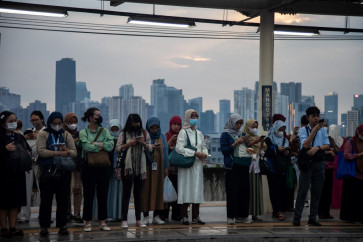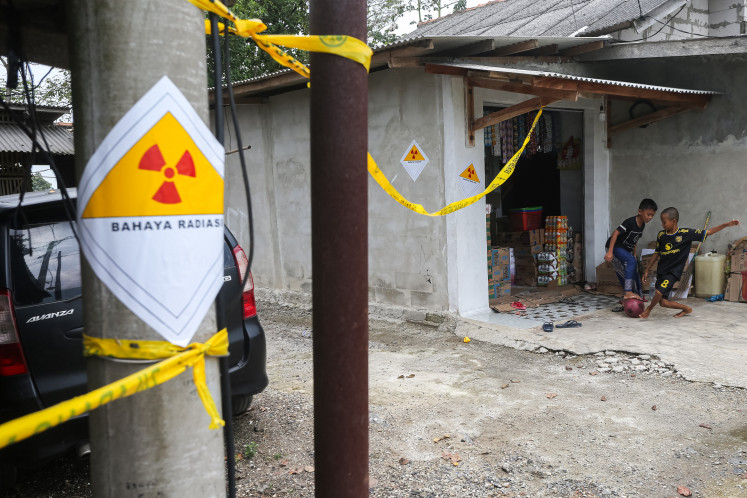Popular Reads
Top Results
Can't find what you're looking for?
View all search resultsPopular Reads
Top Results
Can't find what you're looking for?
View all search resultsUPN Develops streaming radio and television
It started last year with an idea to give students a proper place to learn about the media industry
Change text size
Gift Premium Articles
to Anyone
It started last year with an idea to give students a proper place to learn about the media industry. The National Development University (UPN) Veteran Jakarta now has radio, television and photography studios on campus.
With the new facilities, students have become more enthusiastic about studying the flow of media production, including the creative process in news and talk show productions.
"The idea is to provide a laboratory for students to learn about production. With this facility, the students can create content and put it on the Internet," Retno Dyah Kusumastuti, dean of UPN's School Social and Political Sciences Faculty (FISIP), said recently.
Retno, studying for her doctorate from Sahid University, said the idea to provide a "laboratory" for students was driven by her concern over the quality of university graduates.
She said most university graduates did not have hands-on experience because they only studied theories in classrooms, thus facilitating the need for a laboratory to train students.
In order to give her students skills and experience in the media industry, Retno used to send them to the School of Broadcasting Media in Jakarta for training for three days or more.
However, she said she found this brief training was ineffective. So she conceived the idea of setting up a studio on campus that could be used by students to master their skills in media professions.
Because using conventional broadcasting systems was too costly and the university could not afford it, Retno - after discussions with colleagues - proposed using the Internet or streaming technology.
Fortunately, the campus accepted the idea and began developing the facilities last May.
"If we used a conventional system, it would cost billions of rupiah. We can't afford that. After talking with my colleagues, we decided to use streaming technology," Retno told The Jakarta Post at her office in Pondok Labu, South Jakarta.
The facilities are on the fourth floor of the FISIP building. They include a newsroom, photography studio, radio broadcasting studio and television broadcasting studio.
Yani Hendrayani, head of communications studies at FISIP, said the facilities and studios used to be classrooms.
"We're now making intensive preparations for this project," she said.
When the Post visited the studio, students Deni and Fauzan were checking the equipment in the radio broadcasting studio. They were also trying out the audio system in the studio.
"We're not on air right now because the radio broadcaster is having a class. So we're waiting for her," Fauzan said.
For the moment, it seems, the working hours of the radio and television studios are very much dependent on the availability of the students. That is why the radio and television programs are currently only available on campus.
"We will make them available to the public through Internet streaming very soon. We expect everything will be ready by November," Retno said.
With the spread of globalization, Retno went on, university graduates, especially those from the fields of journalism or communications studies, would have to understand different types of communication media.
"We are now entering a convergent world. Journalists must be skilled in using the Internet. We will put together information in the streaming media. I hope students here can become journalists who can produce written, audio and visual products," she said.
For this purpose, UPN has redesigned its curriculum for the communications studies course. Students will get multimedia subjects from their first semester onward. This is aimed at giving students a better understanding of multimedia technology, so they can generate multimedia products by the end of their studies.
Once the first batch of students graduates with the necessary skills and experience, they will be the first people to run the university's streaming television, called Five TV - short for FISIP UPN Veteran TV.
"We plan to produce television programs every day within the next one to two years. We're preparing the infrastructure and the human resources. That's why we've renewed our curriculum for students," Retno said.
The campus is preparing two studios, one for training and the other for producing programs for streaming TV.
It will be the first streaming TV produced on campus.










